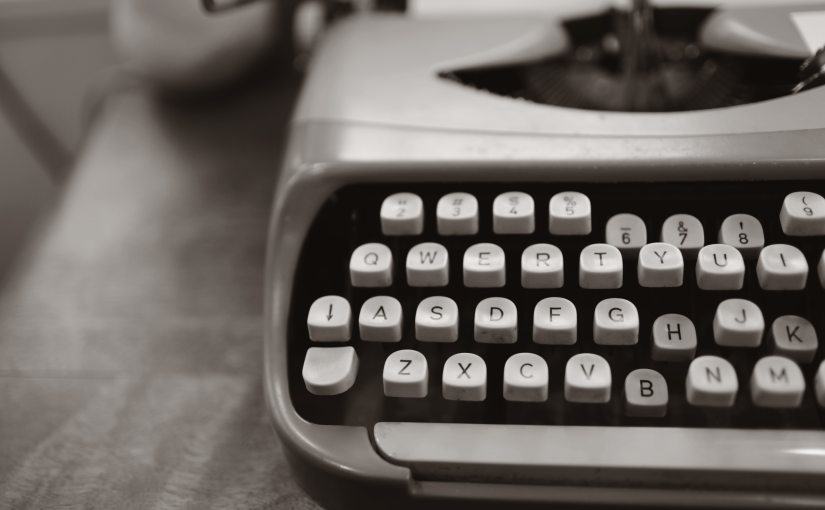With the start of November, it’s often hard to avoid the constant updates of NaNo participants- and as someone who has always wanted to join in (even signed up on the official site once) but never actually followed through, I thought getting some insight from someone who is a seasoned NaNoWriMo participant would be beneficial- not just for myself but for anyone who needs a bit of a boost from a fellow writer. I asked Cara if she would be willing to share her own personal tips with us and she gladly accepted. Continue reading below to see what she had to say about the 30 day, 50k writing frenzy.
Whether you’ve decided to participate in NaNoWriMo or your still on the fence, fear not I’m here to help! I’ve accumulated a few tip and trick that have helped me the last 6 years I’ve done NaNo and I’m ready to share the wealth. These tips are also good for writing in general, so even if you don’t participate, I hope you can find some value.
First things first. What is NaNoWriMo? (NaNo for short)
It stands for National Novel Writing Month. It takes place every November and the goal is to write 50,000 words in 30 days. Averaging out to be 1,500 words a day.
What NaNo means to me:
For me nano is all about committing yourself to a goal/project and giving yourself this hard deadline. It’s very easy to get distracted writing, but when you have a whole communicate working on the same thing, at the same time, it really helps keep up the motivation.
Also, don’t stress if you can’t get to that 50K especially if it’s your first time ever writing a novel, or writing this much in a short period of time. The most important thing is to KEEP GOING. I hope the tips below can help you get that novel completed!
- Plan.
- Take the time to think about what you want your story to be about. Maybe do a rough outline if you like. For me I’m a panters (fly by the seat of my pants/make it up as I go), I usually only have a rough idea of what I want to happen. Maybe big picture events, an ending, whatever, but that’s pretty much it.
- If you do want to learn more about detailed outlining, I highly recommend checking out Katytastic on YouTube, she has a great layout for plot structure. But my one warning on this, don’t let it distract you from actually writing. Plotting can be a great way to procrastinate and with only 30 days your time is precious.
- Work in short bursts.
- I use an app called Focus Keeper (it’s free!) it lets you work in 25 minute burst, with a 5 minute break in between. Getting up and walking around or getting a snack is a great way to not get bored or over worked.
- Make a routine.
- Now this one can be hard, but having a time a day set aside for writing can help in building a habit. Pick a time of day that you know you work best. For me it’s mornings, so I try and set a side 25 minutes at least to write.
- Do it even if you don’t want to.
- That sounds kind of lame, but it’s true. I know sometimes I look at my laptop and think ‘nope it’s not happening today’ but then I make myself write for 25 minutes and if after 25 minutes I’m still not feeling it, I stop. But more often it’s the starting that’s hard and if you can get past that, you can do great.
- DON’T EDIT AS YOU GO.
- I put this one in all caps because I think it’s probably one of the best pieces of advice I ever heard. It can be really tempting to go back and reread and fix and make everything pretty as you write your rough draft, but that can be the death of a novel. Now, sure some people do this and it works great for them, but I think in most case, especially if you are a new writer, it will keep you from progressing.
- Just keep going, everyday keep writing and working towards the end. It might suck, actually, it will probably suck. That’s okay!! That’s what editing is for, but it’s really hard to edit a novel, when you have no novel. The editing brain can also kill the writing brain, at least for me it does, I can keep a much better flow if I don’t keep stopping to edit.
- Turn off grammar and spell check errors.
- Now this is more of a personal thing I learned. When I type fast, I have a lot of errors and it’s very tempting to go back and fix them as I write, but it takes me out of that creative headspace. So, I turn the checker off and just write. I fix all the errors when I go onto editing. This might not be for everyone, but it been a huge help to me.
- Leave the writing day with more to write.
- I’ve heard Pierce Brown talk about this and it’s a great tip. What this means is, when you stop your writing for the day, stop in the middle of a scene or when you still feel like you know exactly what’s going to happen next. I usually leave myself a few notes like: KISSING, SOMEONE DIES, EVERYONE GOES TO A PARTY. Basically, quick notes to remind me what was happening next and that way I don’t spend the first 25 minutes of writing time the next day, trying to get back into the story.
- Don’t get stuck on a scene.
- My rough drafts are riddled with notes to my future self, such as: MAKE THIS LESS BAD. ADD SOMETHING. It may seem lazy and it sucks for future me, but it helps in writing a first draft, especially if you are a pantser like me and haven’t plotted the whole novel. Sometimes the answer won’t come to me until later in the novel and I can add those scenes in editing.
- Don’t worry about the 50K.
- The more important thing is to write. Maybe your rough draft caps at 35k, sure that’s probably not long enough for a finished novel, but you’ve got something to work with and that’s great.
- Find online friends who are also writing.
- This is a great way to stay motivated. Be a cheerleader for your fellow writers and they will cheer you on right back.
- Take a day off if you need to.
- I know I said to write every day, but if you really need it, take a break. Taking a break can be a great way to get the ideas flowing in your head. Sometimes a little breathing room can go a long way.
- The end is worth the journey.
- When you write those last words on your brand new novel, there is nothing better. The hard work and stress finally pays off. So, write that novel for the world to see or write it for yourself just to prove that you can. Write the story that only you can tell, the one with the characters who won’t get out of your head.
- Let it breath.
- This is some after advice, for when that novel is done. Let it sit for at least a week, a month is better if you can. That way when you come back to it, you’ll have a bit of distance to see more clearly.
I hope these tips help you on your NaNo journey and I hope you have a great time creating a new story. I can’t wait to see what you come up with.
Want to be my writing buddy? Come join me on nanowrimo.org my username is: CaraFoshizzle
If you also like pictures of pretty books, you can follow me on Instagram. Instagram.com/carafoshizzle




